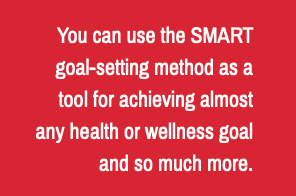By Paul Parkinson, Director of Finance
We are living in times where there is stress around every corner. Even with the best efforts, stress cannot be avoided, so we all seek new and innovative ways of escape, or to simply handle this pressure.
It is often the case that we feel isolated when dealing with our problems, or complex situations as friends or family tend to be unavailable when needed. Mostly this is not through a lack of care or affection, but simply because their lives are busy too, or interrupted with similar dramas.
Everyone, at some point in life, needs inspiration if we are to keep on moving forward. Motivational quotes provide us with a quick and timely burst of wisdom to get our focus back, offering the inspiration needed for the day or occasion. Often a quote can offer inspiration for the week, and inspire us when our normal motivation has lapsed. A quote can act as an aide memoire to focus us on a specific goal or plan of action. ‘Keep it simple stupid’ is a great example at this point, as it sums up the magnitude of quotes to deliver in a succinct way.
Inspirational or motivational quotes capture and appeal to your subconscious mind, which indeed is the major portion of your entire mind. Creativity is found subtly embedded in the subconscious mind. Inspirational quotes may instantaneously change your entire thought process, directing your energies towards a positive path. It is clear that when the subconscious is constantly filled with a flow of positive commands, there is uplift in your general outlook and personality. Psychologists recognise that positivity is vital to recover from illness and that the demeanour of the body is adversely affected by negative thoughts.
One of the toughest things we all have to deal with is procrastination. Whilst taking the time to examine situations deeply, we can sometimes become entrenched by our own thoughts. The task of overcoming procrastination is not a very easy thing but reading a couple of inspirational quotes when our motivation levels are low is an easy way to instantly beat procrastination.
Smiles are contagious and quotes can often bring a huge, sparkling smile to your face. Sometimes, you can evoke that positivity via a smile hours later, as we reminisce and recall a poignant quote.
Some notable quotes:
“All our dreams can come true, if we have the courage to
pursue them.”
Walt Disney
“It’s hard to beat a person who never gives up.”
Babe Ruth
“When one door of happiness closes, another opens; but often we look so long at the closed door that we do not see the one which has been opened for us.”
Helen Keller
“When one door of happiness closes, another opens; but often we look so long at the closed door that we do not see the one which has been opened for us.”
Helen Keller
“Impossible is just an opinion.”
Paulo Coelho
“People who wonder if the glass is half empty or full miss the point. The glass is refillable.”
Unknown
There is one consistent factor no matter how young or old you are, your successes and struggles, where you are from, or what you are facing right now, motivational quotes will spur you on, giving you the much-needed impetus to face whatever life throws at you. Quotes are priceless sources of wisdom and guidance when most needed. During times of trials, struggles and tribulations, they definitely motivate. Failure and success are never final in life; we can always do better, improve or even turn situations around. Inspirational quotes are not only timeless but are often timely in many situations. This is indeed the reason why motivational quotes are important for everyone! What motivational quotes inspire you?
*With credit to Elle Smith (Elle Blog)




